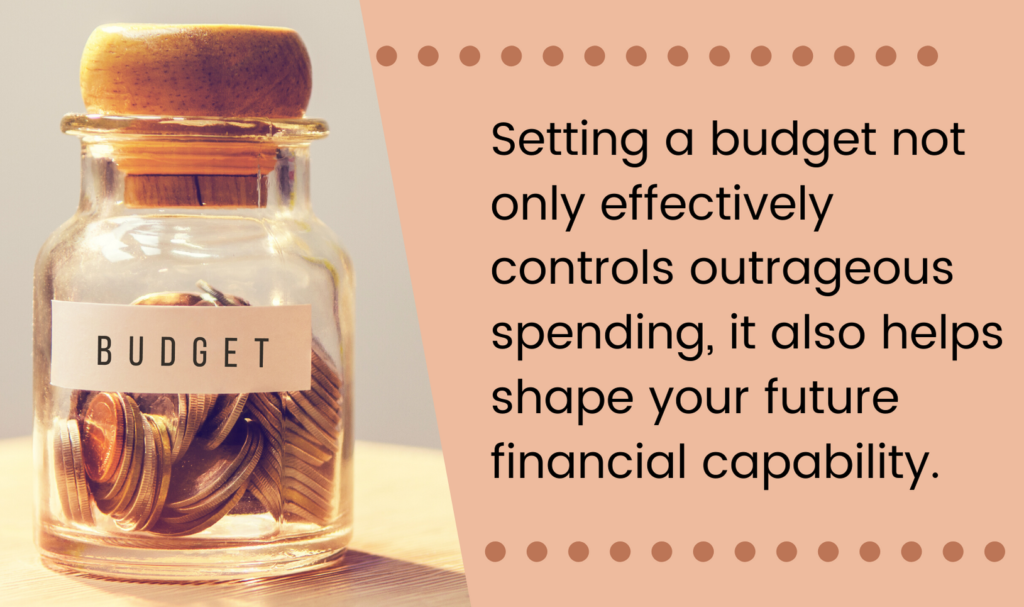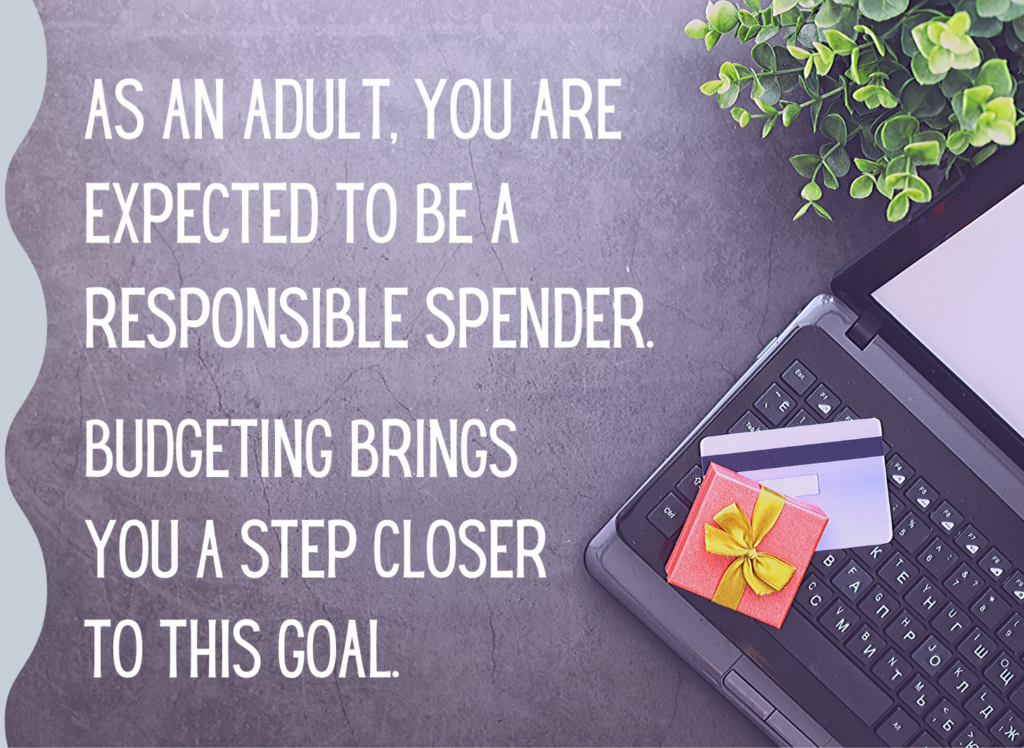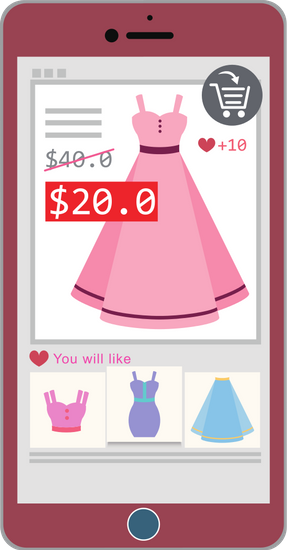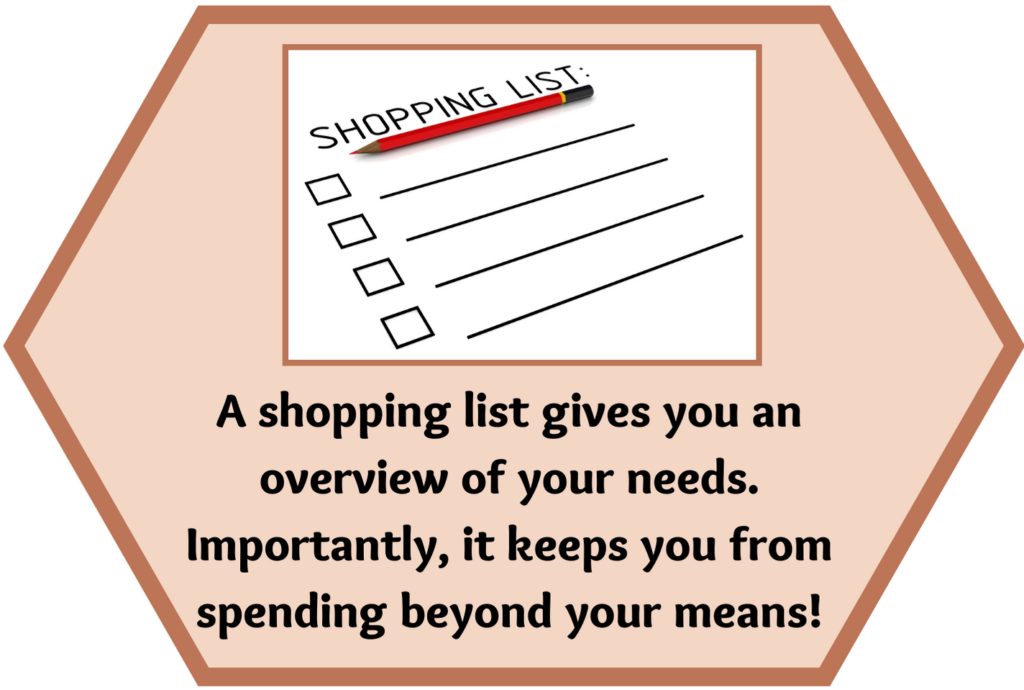It’s a special occasion that calls for an elegant ensemble. You shouldn’t only dress to impress; you must also shower the host with gifts! Regardless of your financial situation, you decide to spend an insane amount of money. You want to stand out and become the best guest they’ve ever had, nothing less!

Above is a typical scenario that will trigger a chronic spenders’ urge to overspend. They give shopping spree a whole new meaning without realizing (or sometimes refusing to acknowledge) that the money well is running dry. This can become a serious problem for people who are compulsively buying stuff that they don’t need.
So what exactly is this chronic spending all about? It’s not uncommon to go over the budget sometimes, but if every trip to the mall yields you practically penniless, there is certainly a problem.
Chronic spending can also be categorized as compulsive buying; purchasing too many things that you do not need. It is a problem regardless of how fat your wallet is, but it is even worse for those who are struggling to make ends meet.
As we live in a materialistic world, people can become potential chronic spenders. Here are some salient characteristics of a chronic spender:
- Experiences absolute thrill when purchasing. While it’s not uncommon to get excited over a purchase, chronic spenders experience a completely different “sensation.” When a product catches their eye and triggers their excitement, they decide they’re not leaving without it!

- Gets easily sidetracked and buys unnecessarily. Are you the type who purchases without thinking about it, and simply “pays and goes?” Did you know that being a compulsive buyer is a step closer to becoming a hoarder? Compulsive buying, which forms part of chronic spending, can bring you and your family financial adversity.
- Shops to overcome a negative situation or emotion. For chronic spenders who are going through some emotional turmoil, the very act of buying is therapy itself. It compensates for the awful emotional state they are in. The truth, however, is that no matter how satisfying shopping can be, it is only a band-aid solution.
Technology has made shopping accessible to everyone, heightening the spending activities of compulsive buyers. Anywhere you shop, merchants seem to promote the shop-til-you-drop attitude. They have massive discount campaigns, product promotions, and advertising tricks that chronic spenders can’t help but fall for!
Chronic spenders—who are unable to control their urge to buy—should get help before their financial situation becomes irreversible.
What the Statistics Say
Generally, when we talk about shopping, women take the spotlight. Not that men don’t shop at all, but it is common knowledge that women tend to go gonzo in this department. As a result, women are more likely to be chronic spenders than men. Research shows about 5% of the population from affluent countries are chronic buyers. Roughly 80% of that number are women who tend to have “more needs” than men.

Another study stated that compulsive buying occurs during a woman’s late teen years, which means those within the 20-to-30 age bracket. It is at this age that they begin to earn their money, spend their earning, and think about financial stability. Having or keeping a job means earning money, which enhances their spending ability.
Understanding How Budgeting Works
For most of us, budgeting isn’t rocket science. It is the process of planning how, when, and where to put your money. Budgeting lets you set small targets and take small but sure steps that help you secure your financial future.
Regardless of your financial capability, you need to keep track of the movement of your money. Responsibly allocating for your “needs” and determining if you can afford your “wants” are just one part of budgeting. Managing your spending activities is an integral component of it.

Looking at your financial situation should drive you to set an appropriate budget periodically. Take advantage of customizable budgeting platforms and budgeting tools. It may be a long shot for a chronic spender to truly embrace budgeting, but tech-based budgeting apps make a good start!
Chronic spending happens when people go out of control in their urge to possess material things, and their environment plays a critical role in this situation. Whether a chronic spender will set a budget and suddenly spend indiscriminately defying financial management rules, no one knows. It’s a matter of showing them where to start and guide them along the way. If constant guidance fails, then it is best to seek professional help.
Still, some people need financial advice and budgeting ideas but become hesitant to heed any. For chronic spenders, budgeting suggests restriction; they think it limits them from living and having fun.
As an adult, you are expected to be a responsible spender—and budgeting is your first crucial step to being just that!
Practical Budgeting Tips
Now that we’ve fully understood the scary effects of chronic buying, we now move on to how do we stop this thing? Does budgeting work? How hard would it be for chronic spenders to get rid of their awful spending habits completely? Let’s take a look at some of the practical budgeting tips below that will guide you to become financially responsible.
Learn the basics of budgeting.
How you carefully set a budget can define your financial capability in the future. For chronic spenders, setting a budget is absurd. However, this is the best way to control outrageous spending habits.
When making a budget, you need to know how much exactly you are earning. When it comes to spending, your income should be a deciding factor! Set money aside for emergencies instead of focusing only on your day-to-day needs and dues. Allocate your earning to every category and prioritize them accordingly.

Now the leftover: how much money is left? Stick to this amount and modify your spending habits once you’ve seen the final digits.
If you want to succeed in your budgeting goal, there is a rule of thumb. Half of your income or 50% should be for your necessary expenses, take 30% for your “wants,” and save the remaining 20%.
Many attest that this works for them, but you can always make adjustments otherwise. Keep in mind, however, that as a chronic spender, self-control is critical. Do not give in to your urge to spend on unnecessary things. Don’t make changes based on your inability to control your bad spending habits, either.
Track your spending activities.
Chronic spenders hardly think of keeping tracking of their splurges. Part of the process of budgeting is keeping an eye on everything that you pay for. Regardless of the amount, monitor your spending.

Remember that budgeting only works if you track your expenses, and in doing so, every dollar must be accounted for. It gives you a glimpse of your financial situation, which might just bring out the rational spender in you!
When it comes to budgeting, no amount is insignificant. What could be defined as petty expenses should not be disregarded.
Go traditional. Use cash.
Cashless shopping is trendy and convenient, but it’s a breeding ground for compulsive buyers. The accessibility of credit cards satisfies a chronic spender’s urge who rarely rethinks their purchases. Typically, credit card bills are sent to account holders only once a month, so shoppers do not have a real-time perspective of how their spending truly impacts them financially.
The end goal of budgeting is to limit the spending activity. Using cash for payment gives you actual knowledge of how much you have. Bringing enough cash helps limit your buying activity. It allows you to track your expenses for the day and keeps you on top of your own money.
Try a low maintenance lifestyle.

Compulsive buying happens because of social pressure and materialism, which is why budgeting can be tricky when you keep a high-maintenance circle. As such, embracing a low-maintenance lifestyle will bring positive change, no matter how gradual.
Chronic spenders are hesitant to do a lifestyle change since it forces them to stay away from their norms. It can be a challenge to suddenly stop socializing with friends, going on spur-of-the-moment leisure trips, or dining out in Michelin-starred restaurants.
Budgeting should apply to your overall lifestyle. Monitoring your spending can only do so much; the social aspect of your life must take a back seat if you want your budgeting efforts to work.
Spend responsibly for special occasions.

Chronic spenders love social activities. Apart from letting them show off their most expensive wardrobe, it satisfies their urge to buy.
Organizing your financial schedule is imperative in budgeting, and this applies to buying decisions associated with events! Look good, but stay within your budget.
Save for the rainy day.
Emergencies are scary, but they happen when you least expect them. Being financially prepared will ease out the stress when mishaps occur in our lives—chronic spenders included.
Anybody, including compulsive buyers, should have a rainy day account. Saving for this time will free you from incurring potential debts. Financial unpreparedness will make you resort to urgent solutions like borrowing money from someone—which can be another problem in the making!
Settle your dues.

Everyone has a debt to pay, especially compulsive buyers. Pay your credit card bills, loans, and other payables on time. Putting off payments will only incur interest, and before you know it, you drown in debt.
Effective budgeting will teach you to pay all your dues, which must take priority over expenses. Before you make another careless purchase, settle your dues. It is a must to set aside a portion of your earnings to clear out your debts; you have a legal obligation to do so!
Be a smart shopper.
Chronic spenders not only have the urge to spend; they usually have a ludicrous habit of buying expensive stuff. For these people, anything expensive and flashy improves their self-esteem.
Smart shopping entails contemplating every product before buying it. Ask yourself, “Do I need this? Are there cheaper options? Will this prove useful in the future?” These questions can help you figure out how you should spend your money—and if you even should!
Chronic spenders need to understand that asking practical questions can keep financial disasters at bay. Buying is not always the solution.
Stick to your shopping list.

A shopping list applies not only to groceries; it can be anything you need before going to the mall. Keeping this list not only keeps you on track of your needs but also keeps you from spending more than you should and going beyond your means.
When shopping, your list should serve as your reminder. Doing this every time you go out will foster discipline and rational buying habits. Habitually conforming to a shopping list can make a significant difference in your financial situation over time.
Freeze your credit cards.

Credit cards are helpful, but they serve as enablers of chronic spending. Budgeting can be more challenging when you have several credit cards that let you swipe-and-go as you wish.
Consider freezing your credit cards. Unfreezing them can be quite inconvenient, and therefore this trick may suggest permanence. Use cash instead to help you shift from chronic spending to responsible and controlled shopping.
Before you know it, chronic spending can turn your life upside down. It is a financial disaster waiting to happen. Take the right budgeting steps toward sound financial decision-making!
